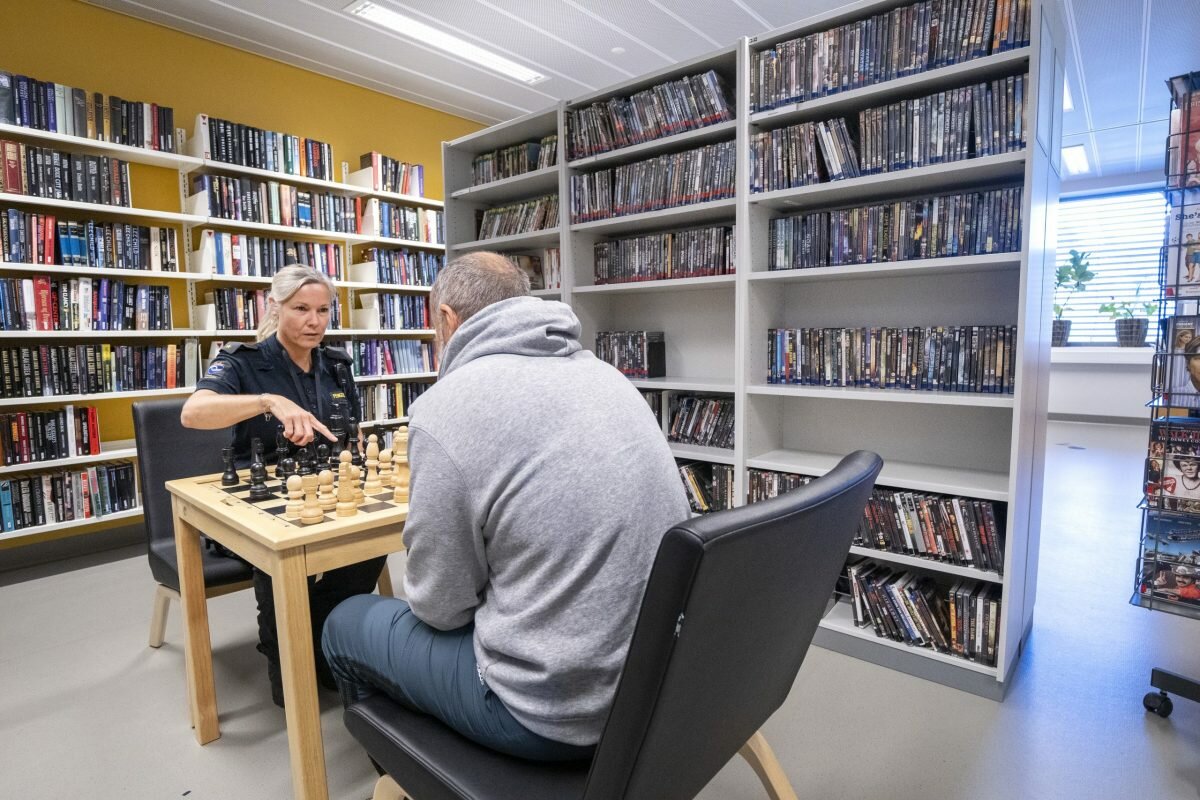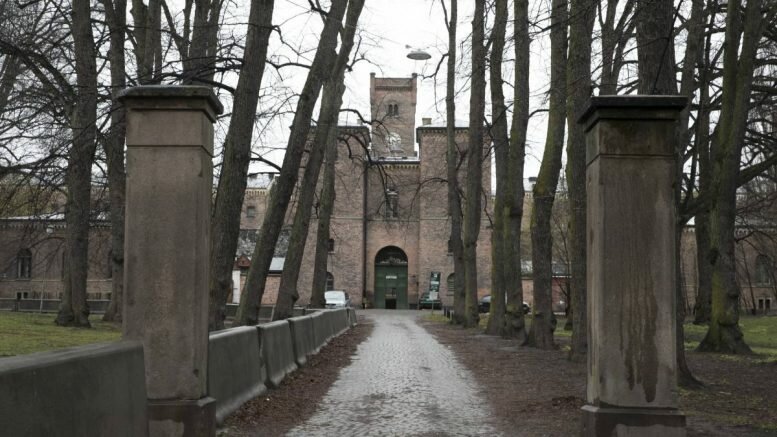With the nation’s gaze firmly centered on the Breivik parole case, issues around imprisonment are national topics of discussion again. Norwegian prisons are both praised and parodied worldwide. For some, they are nothing more than luxury resorts for criminals. For others, they are humane places of punishment that seek to holistically aid society’s troubled few. The truth, as always, lies somewhere in the middle.
How peaceful and stable is Norwegian society?
For many around the world, Norway has a reputation for being a safe and harmonious society. Due to a vast social welfare state, low unemployment, low-income inequality, and a high standard of living there is no real serious societal crime in Norway. Yes, there is homelessness, gangs, disorder, murder, and petty crime but these are all, relatively speaking, minimal. Crime is simply not a feature of Norwegian everyday life.
So, before we delve into prison life, let us zoom out and have a look on a societal level. The World Justice Project is an international civil organization that publishes a “Rule of Law Index” annually. This is a quantitative study of how countries adhere to the rule of law in practice. The 2021 Index saw Scandinavian countries dominate the top 5 with Norway finishing second just below Denmark. Countries are judged on factors like civil justice, constraints on government powers, the absence of corruption fundamental human rights, transparent government, order and security, regulatory enforcement, and the criminal justice system.
Does Norway have a small prison population?
With a national population of just over 5.6 million, it is to be expected that Norway possesses a very small prison population. The Institute for Crime and Justice Research releases a “World Prison Brief” annually. This is a statistical snapshot of a country’s prison system. There were 3.302 prisoners (including pre-trial detainees and remand prisoners) in Norway in 2021. This number placed Norway 132nd out of the 223 countries surveyed.
Remarkably, though, the total number of prisoners has actually been decreasing over the past half-decade. The peak year of 2016 saw 3.850 prisoners incarcerated but this number has decreased every year since until the 3.302 locked up last year.
Has Norway seen an increase in crime in recent years?
We’ve all heard this statement from everyone over a certain age. In fact, it is probably said the world over. People claim that society has gotten more violent and more criminal in recent times. Given the vast changes in Norwegian society over the past 3 decades, one may assume this to be correct. The data, however, strongly points otherwise.
Using the “prison population rate” (the number of inmates per 100.000 of the population) as a measure of this statement, the Institute for Crime and Justice Research figures for Norway do not back up this common assumption.
The 2021 figures show Norway’s rate is 61 which is slightly more than Sweden (73) but is less than half that of the United Kingdom (123) and pales in significance compared to the United States (629).
What is most interesting is that this rate has remained relatively stable since the turn of the millennium. From a score of 57 in 2000, the rate increased to a peak of 75 in 2010. Yet every year since then it has actually been decreasing until a low of 54 in 2020. The rate having spiked last year is perhaps due to large societal problems (increased drug use and mental health issues) associated with the various COVID lockdowns.
Is there life imprisonment in Norway?
Since January 18, Norway has been following the events of a parole hearing in the Telemark District Court with intense interest. This is not an ordinary parole hearing as the man at the center of the trial is also the man responsible for causing the biggest loss of Norwegian life since the Second World War: Anders Behring Breivik – or as he is now legally known “Fjotolf Hansen.”
Breivik was convicted in 2012 for the mass murder of 77 people (mostly young teenagers), causing an explosion and terrorism. He was sentenced to 21 years imprisonment with a non-parole period of 10 years. He has been placed in a form of “preventive detention.” This is reserved for the most seriously convicted criminals in Norway. Following his decade-long non-parole period, Breivik is currently in the midst of a parole hearing as is his right. The Telemark Court will be hearing whether Breivik is still a danger to society – and thus his detention can be extended – or has he changed and can he be paroled.
Should the criminal still be deemed to be a danger to society after the non-parole period, this detention can be extended, in theory, indefinitely. Yet the convicted will still have a right to parole hearings every year after the non-parole period has been served. For Breivik, given the media attention to his parole hearings, and time, research, and procedural attention needed to hold these hearings, his lawyer expects that in reality, the parole hearing will take place every third year should he be successful in his current bid for freedom.

Is there too little focus on punishment in Norwegian prisons?
There has been much debate, from outside the country, about the so-called “lenient” philosophy of Norwegian incarceration. Norwegian prisons place a huge focus on the rehabilitation of the convicted. The best way to ensure that an offender does not wind up back in prison is to foster a healthy reintegration back into society. To be sure, like all prisons worldwide, Norwegian convicts are robbed of their freedom but this is done in such a humane way as to help the offender learn and grow.
The focus of Norwegian prison is to be the differences between “inside” incarceration and the world “outside” as little as possible to ease this integration back once their time is served. Progression is key. Here, high-security prisons give way to lower security then halfway houses then, finally, freedom unless security reasons dictate otherwise.
Mental health services, job training, educational opportunities, and other more holistic approaches to the rehabilitation of criminals are offered other than just a locked room and a seemingly infinite amount hours to count. The physical and mental stimulation of prisoners is looked after as well with gyms, training equipment, libraries, books, videos, and even shops offered in some lower security prisons in Norway.
Are Norwegian prisons really like hotels?
Those that often want to parody Norwegian prisons paint a picture of criminals living a life of luxury at the taxpayers’ expense. Within the Norwegian philosophy of normalcy and treating inmates as humans and not numbers, Norwegian prisons are more like a spartan hotel room than anything you have seen in the movie “The Shawshank Redemption.” Included in most Norwegian prison rooms are wooden furniture, a private bathroom and shower, a flat-screen television, a desk, and a full set of bedsheets.
Some prisons in Norway also offer their inmates a wide variety of activities with a focus on rehabilitation. Inmates can attend yoga classes, cook for other inmates or even learn a musical instrument.
The opinions expressed are those of the author and are not held by Norway Today unless specifically stated.
About the author:
Jonathan is a lover of the written word. He believes the best way to combat this polarization of news and politics, in our time, is by having a balanced view. Both sides of the story are equally important. He also enjoys traveling and live music.
Source : #Norway Today / #NorwayTodayNews
Do you have a news tip for Norway Today? We want to hear it. Get in touch at info@norwaytoday.no






Everybody knows that Norwegian prisons are the best in the world because criminals are treated in a that helps them to rehabilitate and be law abiding citizens. This is an accepted system because punishment only does not serve the purpose of rehabilitation of criminals. But recently we are witnessing an increase of crime in Norwegian society. I suspect the reason can be the leniency of the government. Specially terrorists should not be treated the same way as other criminals in prison. They should be denied all rights and be kept in very strict order. The government should be able to differentiate between hard core criminals and spontaneous criminals that commit minor crimes. In such a way we can minimize the daily stabbing, shooting and killing etc.